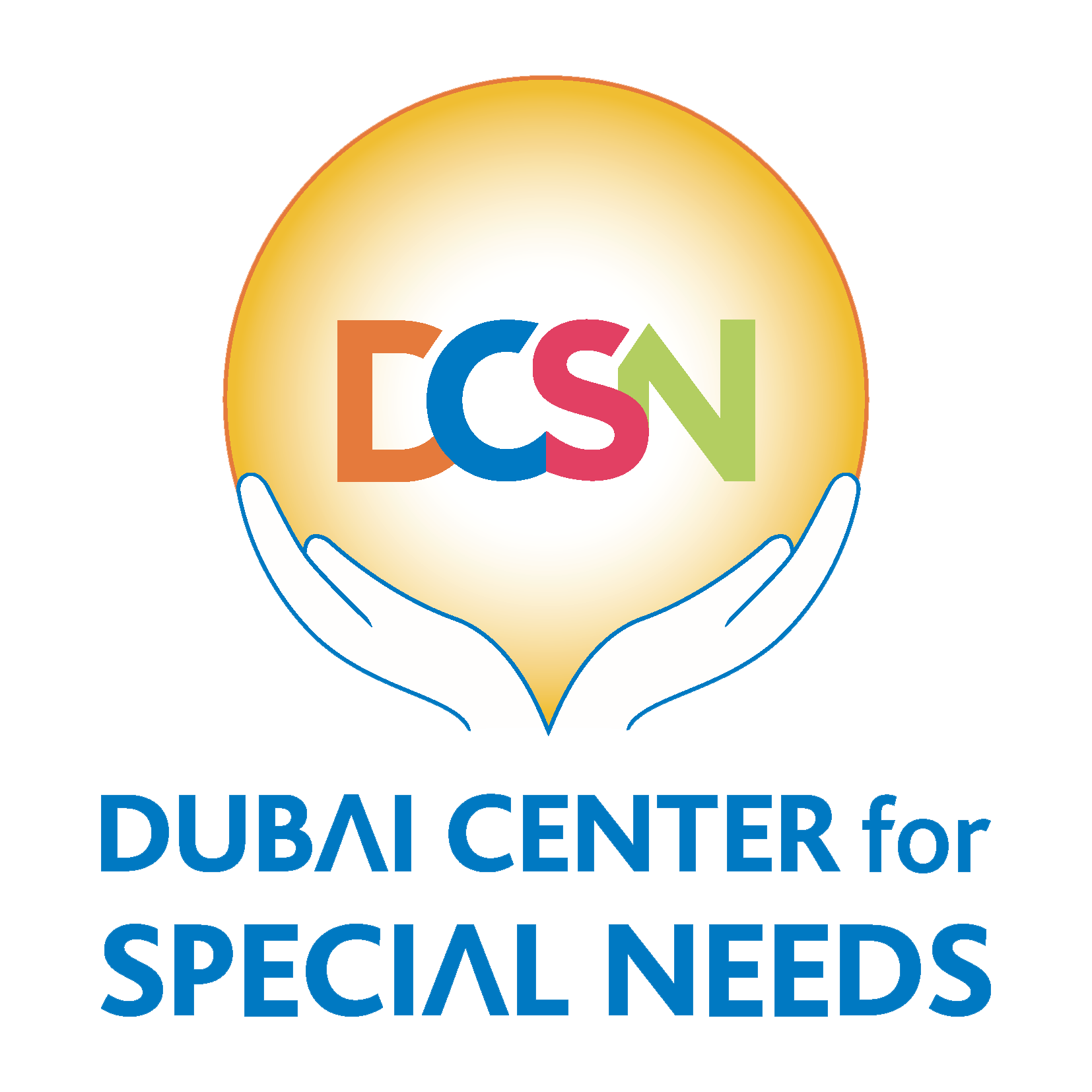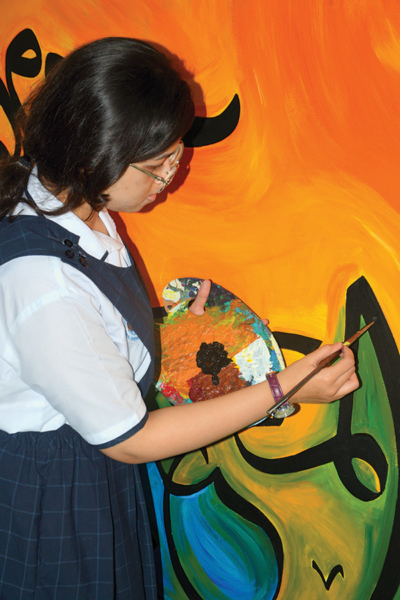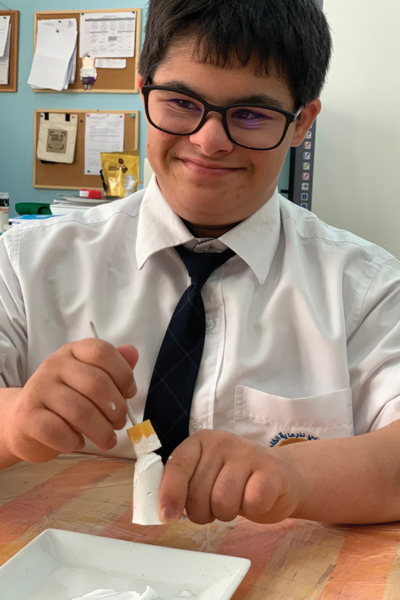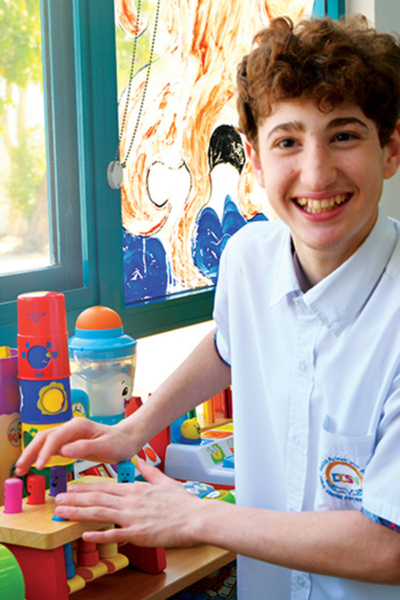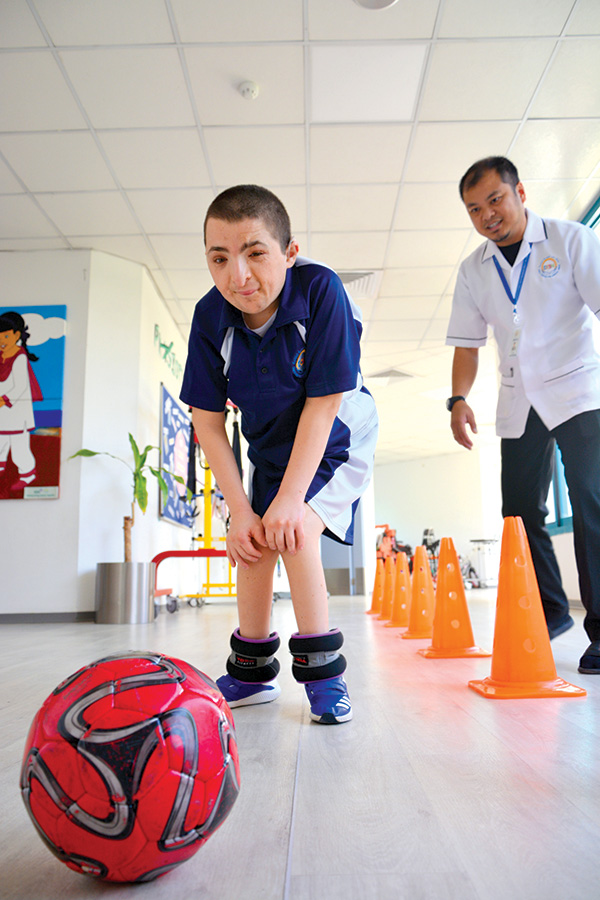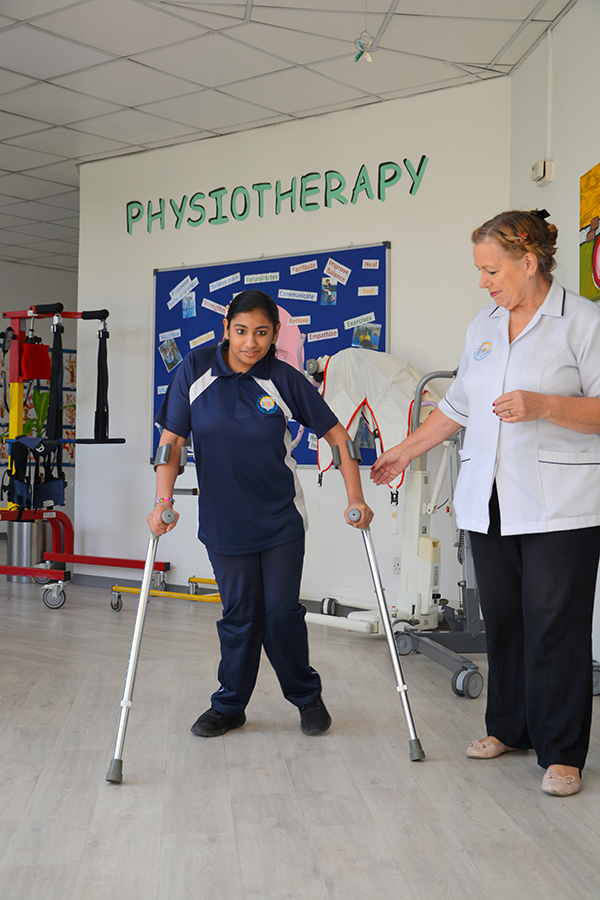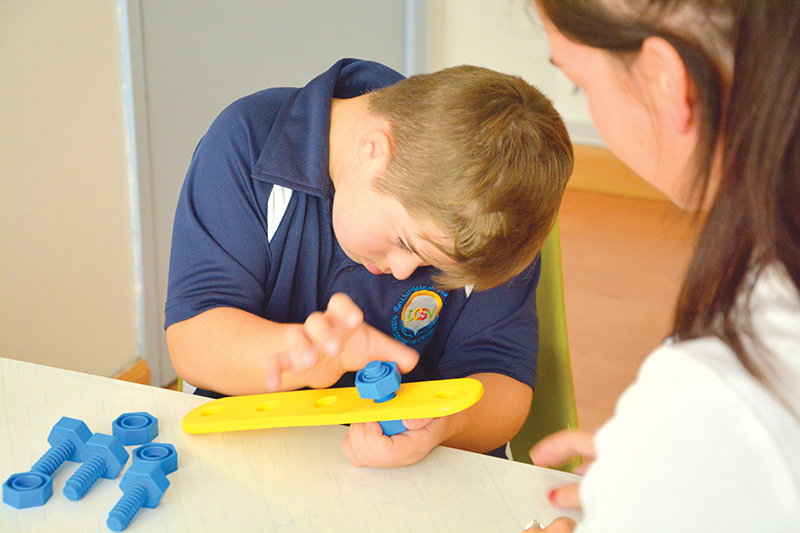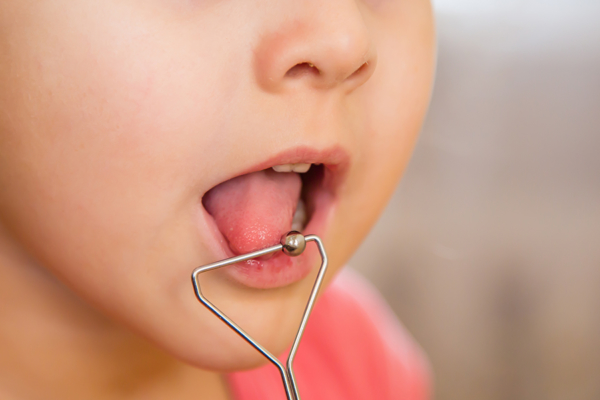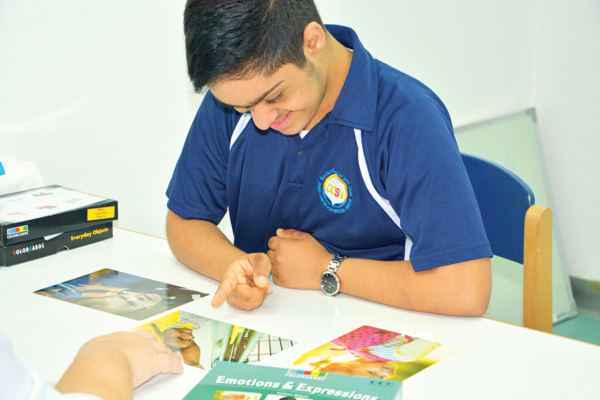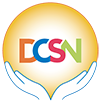Rehabilitation
DCSN has several therapy departments including Physiotherapy, Occupational Therapy and Speech & Language Therapy to benefit our students.
Physiotherapy
Our Physiotherapists conduct complete assessments and use them to create individualized programs suited to each student’s strengths and needs. Assessments include observing balance, coordination, physical positioning throughout the day, joint range of movement and muscle strength. Depending on the student’s specific strengths the physiotherapist will determine whether specialized equipment is necessary. The physiotherapist continues to work with children and their families to improve physical independence.
Occupational Therapy
Occupational Therapists work with students across the school with a wide range of learning, physical, and intellectual disabilities to promote independence in everyday activities that they need or want to do both in school and at home. This can include many areas such as dressing, handwriting, concentration, toileting, and providing equipment for postural seating. Our certified occupational therapists consult with each student’s family and teacher to identify specific and personalized goals and strategies to succeed and meet the individual needs in everyday life.
At DCSN program, we offer NDT by a certified and experienced Occupational Therapist (OT) with 27 years of clinical experience in neurodevelopmental disorders across the age spectrum., which highlights our commitment in providing comprehensive and effective care therapeutic services to our students.
The Neurodevelopmental Training/Bobath (NDT) program is one of the most important therapeutic approaches in the rehabilitation of individuals, both children and adults, suffering from Central Nervous System damage such as tetraplegia, diplegia, and hemiplegia. These conditions often lead to posture and movement dysfunctions, imposing limitations on overall functional activity. NDT, an advanced therapeutic method, is exclusively administered by specialized therapists in a one-on-one setting.
Implemented through hands-on techniques, known as facilitations, this approach aims to mimic normal development by addressing abnormal muscle tone and other responses that hinder the production of regular, functional static patterns and motor behaviors.
The key objectives of the NDT method include reducing the impact of abnormal muscle tone, facilitating the normal maturation of reflexes, enhancing static control and balance, and aiding children with developmental difficulties who exhibit generalized static and motor disorganization.
Speech & Language
The ability to communicate is essential in every aspect of life.
Our Speech and language therapists assess, diagnose and provide therapy for students with speech and language difficulties. Speech and language therapists also assess eating and drinking difficulties and provide individualized eating and drinking guidelines when needed.
Some of the areas addressed include:
- Receptive/Expressive Language
- Eating and drinking skills/dysphagia
- Oral Motor Skills
- Cognition
- Fluency/stuttering
- Apraxia of Speech
- Articulation and Phonology
- Memory
- Auditory Processing
At DCSN we conduct individual and group therapy sessions and work in close collaboration with parents, teachers and doctors to help the students reach their maximum potential.
